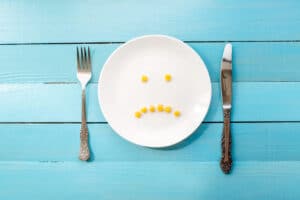Action in partnership with eureciclo seeks to increase the volume and quality of recycled materials — including styrofoam
Reducing and recycling packaging used in meal delivery are two priorities among iFood Regenera efforts, the pillar of iFood's environmental commitments. One of its goals, in fact, is to end plastic pollution in delivery by 2025.
At the initial end, that of consumption, foodtech has already invests in sustainable packaging and campaigns so that consumers do away with plastic cutlery when placing your order – to date, more than 80 million orders have been delivered without single-use forks, knives and spoons.
At the final end, which involves recycling, the company has 78 Voluntary Delivery Points active in the country, estimated to recycle 400 tons of waste per month. To expand this impact, iFood also began investing in improving the recycling chain by closing a partnership with eureciclo, to optimize the operation of two cooperatives in Rio Grande do Sul: Coopcamate, from Canoas, and Coolabore, from Novo Hamburg.
“We want to increase the volume of recycled waste and cooperatives are essential for this. Our goal is to help them process larger volumes of waste and, in doing so, combine environmental and social impact, also generating new jobs and better wages”, says Camila Borges, senior sustainability analyst at iFood.
The partnership with the two cooperatives began in October 2021 and will initially last for one year. “With consultancy from eureciclo, iFood sought to understand what actions would be necessary to increase the volume and quality of recycled material”, explains Jackson Ferreira, senior project analyst at iFood.
This analysis identified the level of production and recycling potential of cooperatives, in addition to growth bottlenecks, such as the lack of resources to maintain machinery and high employee turnover.
“From there, we allocate money for the maintenance of the machines and encourage the use of data intelligence to help cooperatives control the materials received”, says Jackson. Another change was to prepare them to receive and recycle Styrofoam, a material frequently used in delivery and difficult to recycle. “For cooperatives, it was an opportunity to increase their profits,” says Jackson.
In addition, iFood offered courses on management, process control and communication with customers for cooperatives, says Camila. “We are also looking at human development, so that people can add this to their daily lives”, he adds.
At the end of the first year of partnership, the goal is to increase the volume recycled and sold at Coopcamate by 30% (from 66 to 86 tons per month) and by 40% at Coolabore (from 68 to 95 tons). The results began to appear in the first few months: cooperatives began to recycle more and improve the quality of recycled material, which began to be sold at a higher price.
As a result, the income of workers in one of them improved. “The average income at Coopcamate, which was R$ 1,495, rose to R$ 1,518 in these first two months. This increase is already helping to reduce professional turnover,” says Jackson.


